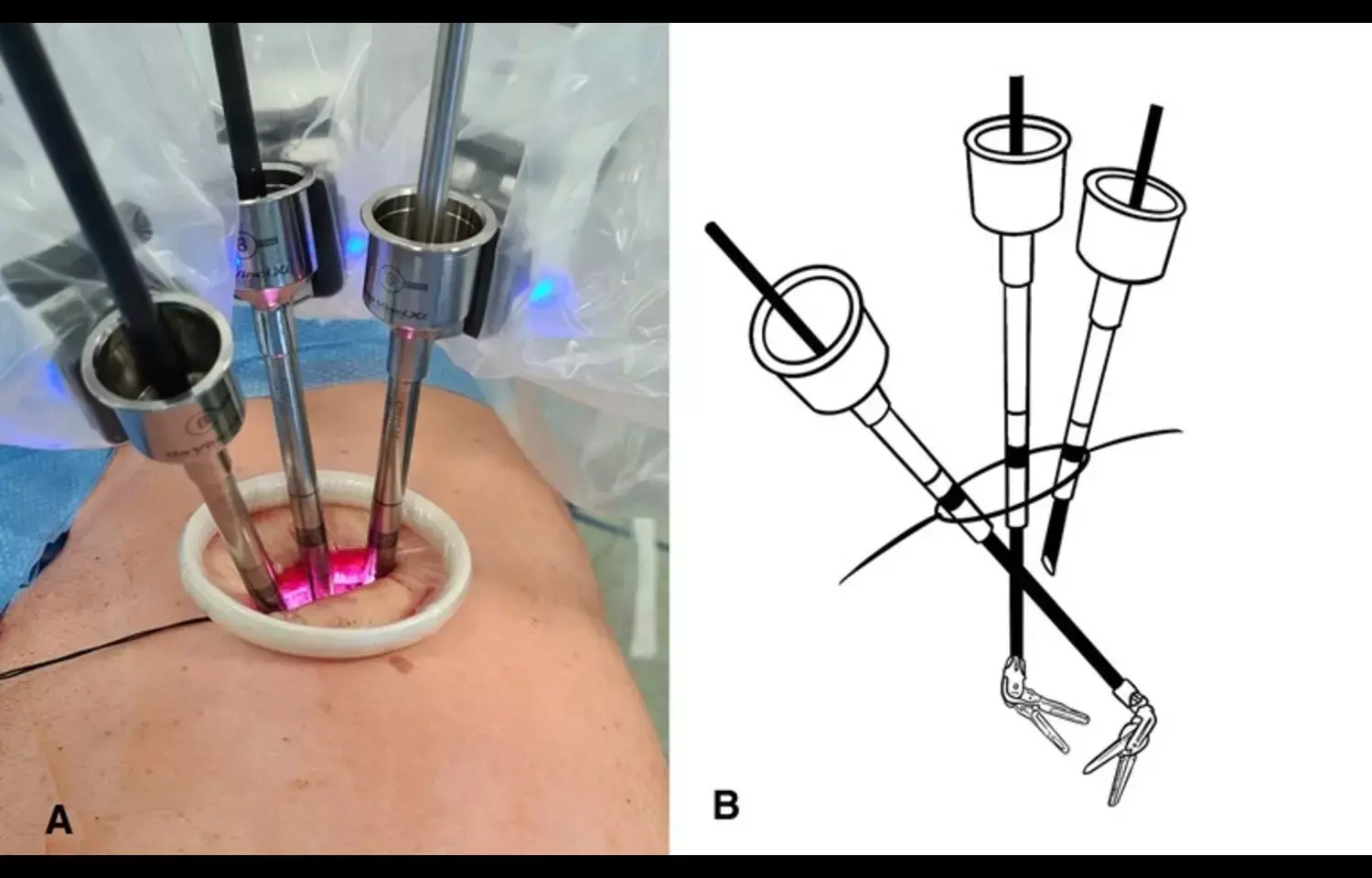- Home
- Medical news & Guidelines
- Anesthesiology
- Cardiology and CTVS
- Critical Care
- Dentistry
- Dermatology
- Diabetes and Endocrinology
- ENT
- Gastroenterology
- Medicine
- Nephrology
- Neurology
- Obstretics-Gynaecology
- Oncology
- Ophthalmology
- Orthopaedics
- Pediatrics-Neonatology
- Psychiatry
- Pulmonology
- Radiology
- Surgery
- Urology
- Laboratory Medicine
- Diet
- Nursing
- Paramedical
- Physiotherapy
- Health news
- Fact Check
- Bone Health Fact Check
- Brain Health Fact Check
- Cancer Related Fact Check
- Child Care Fact Check
- Dental and oral health fact check
- Diabetes and metabolic health fact check
- Diet and Nutrition Fact Check
- Eye and ENT Care Fact Check
- Fitness fact check
- Gut health fact check
- Heart health fact check
- Kidney health fact check
- Medical education fact check
- Men's health fact check
- Respiratory fact check
- Skin and hair care fact check
- Vaccine and Immunization fact check
- Women's health fact check
- AYUSH
- State News
- Andaman and Nicobar Islands
- Andhra Pradesh
- Arunachal Pradesh
- Assam
- Bihar
- Chandigarh
- Chattisgarh
- Dadra and Nagar Haveli
- Daman and Diu
- Delhi
- Goa
- Gujarat
- Haryana
- Himachal Pradesh
- Jammu & Kashmir
- Jharkhand
- Karnataka
- Kerala
- Ladakh
- Lakshadweep
- Madhya Pradesh
- Maharashtra
- Manipur
- Meghalaya
- Mizoram
- Nagaland
- Odisha
- Puducherry
- Punjab
- Rajasthan
- Sikkim
- Tamil Nadu
- Telangana
- Tripura
- Uttar Pradesh
- Uttrakhand
- West Bengal
- Medical Education
- Industry
Uniportal robotic-assisted thoracic surgery Shows Better Postoperative Recovery Than MRATS: Study

Researchers have found in a new study published in BMC Surgery by Ting-Fang Kuo, Chien-Kuo Kuo, Pei-Ying Lin, Ching-Yao Chen, Chun-Ru Huang, and Hsuan-Tsung Lee that uniportal robotic-assisted thoracic surgery appears to be a feasible and effective surgical approach. According to the authors, this method allows surgeons to operate through a single incision using robotic precision, which helps reduce tissue trauma and postoperative pain.
The study observed that patients who underwent uniportal robotic-assisted thoracic surgery required less analgesia during the immediate postoperative period and were able to leave the hospital sooner than those who underwent multiportal robotic-assisted thoracic surgery. These findings suggest that the uniportal technique may contribute to smoother recovery and greater patient comfort during the early postoperative phase.
The research team highlighted that both techniques—uniportal and multiportal robotic-assisted thoracic surgery—produce comparable oncological outcomes in terms of lymph node dissection and pathological staging. However, the uniportal approach demonstrated distinct advantages in early recovery, pain reduction, and shorter hospital stay. The authors explained that performing surgery through a single entry point reduces the overall invasiveness of the procedure, thereby minimizing surgical trauma and accelerating recovery.
They also noted that the technique aligns well with the principles of enhanced recovery after surgery, which focus on minimizing postoperative complications and supporting patient well-being. By offering a less invasive route while maintaining surgical precision, uniportal robotic-assisted thoracic surgery reflects the continuous evolution of thoracic surgery toward more refined and patient-centered methods.
According to Kuo and colleagues, adopting this uniportal approach may require additional technical training and experience, as operating through one incision involves a steeper learning curve compared with traditional multiport techniques. The authors suggest that larger, multicenter studies are needed to validate these findings and to explore whether the benefits observed in early recovery translate into improved long-term outcomes. Nevertheless, this study underscores the potential of uniportal robotic-assisted thoracic surgery to redefine minimally invasive thoracic operations by combining surgical accuracy with enhanced postoperative recovery.
Dr. Shravani Dali has completed her BDS from Pravara institute of medical sciences, loni. Following which she extensively worked in the healthcare sector for 2+ years. She has been actively involved in writing blogs in field of health and wellness. Currently she is pursuing her Masters of public health-health administration from Tata institute of social sciences. She can be contacted at editorial@medicaldialogues.in.
Dr Kamal Kant Kohli-MBBS, DTCD- a chest specialist with more than 30 years of practice and a flair for writing clinical articles, Dr Kamal Kant Kohli joined Medical Dialogues as a Chief Editor of Medical News. Besides writing articles, as an editor, he proofreads and verifies all the medical content published on Medical Dialogues including those coming from journals, studies,medical conferences,guidelines etc. Email: drkohli@medicaldialogues.in. Contact no. 011-43720751


